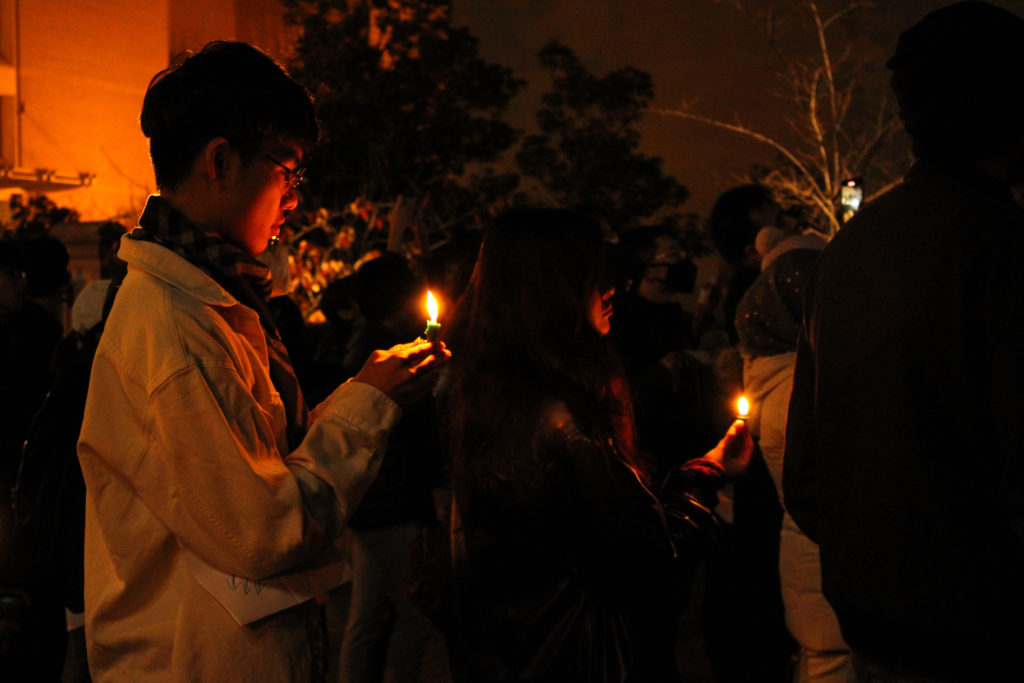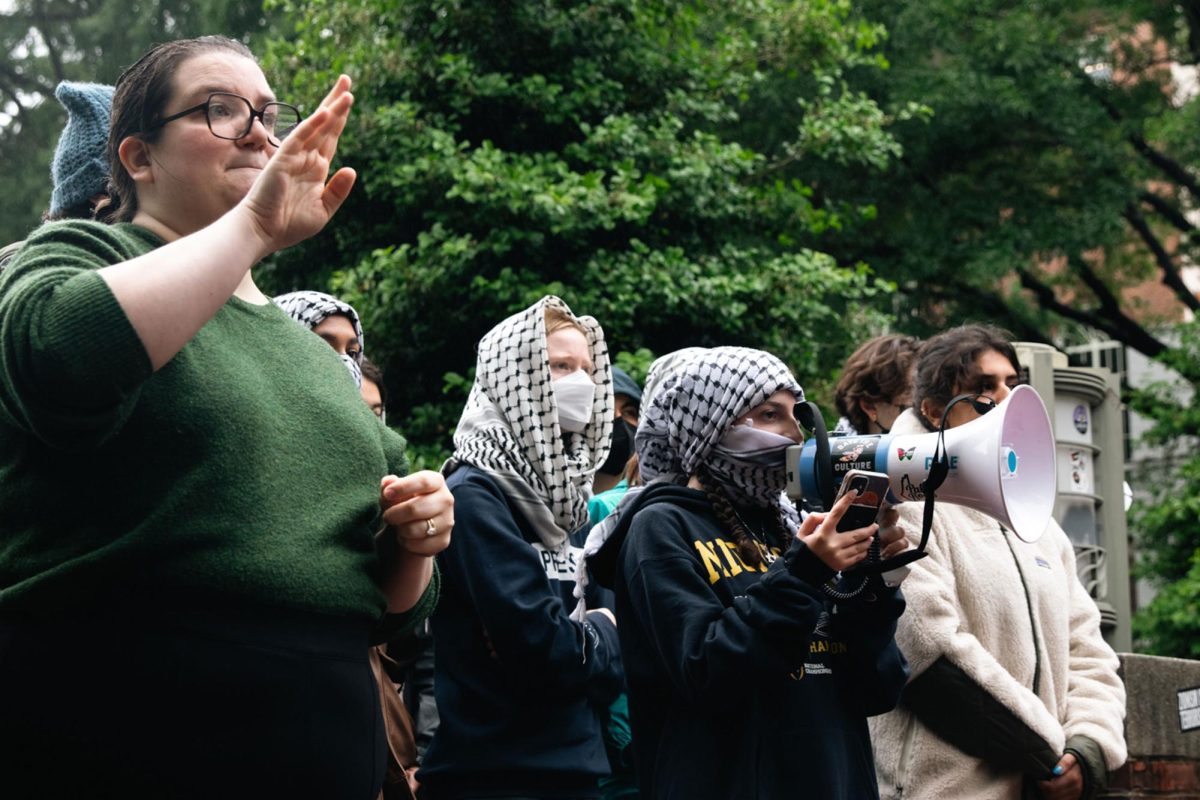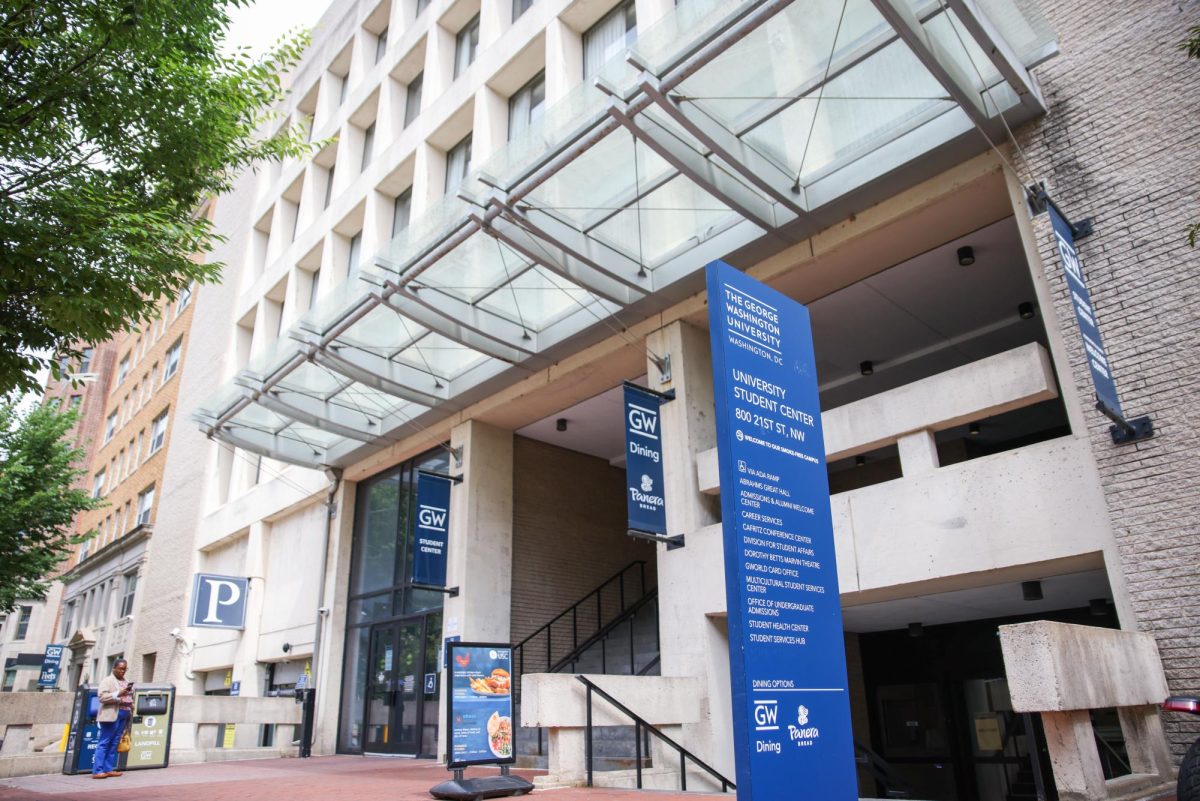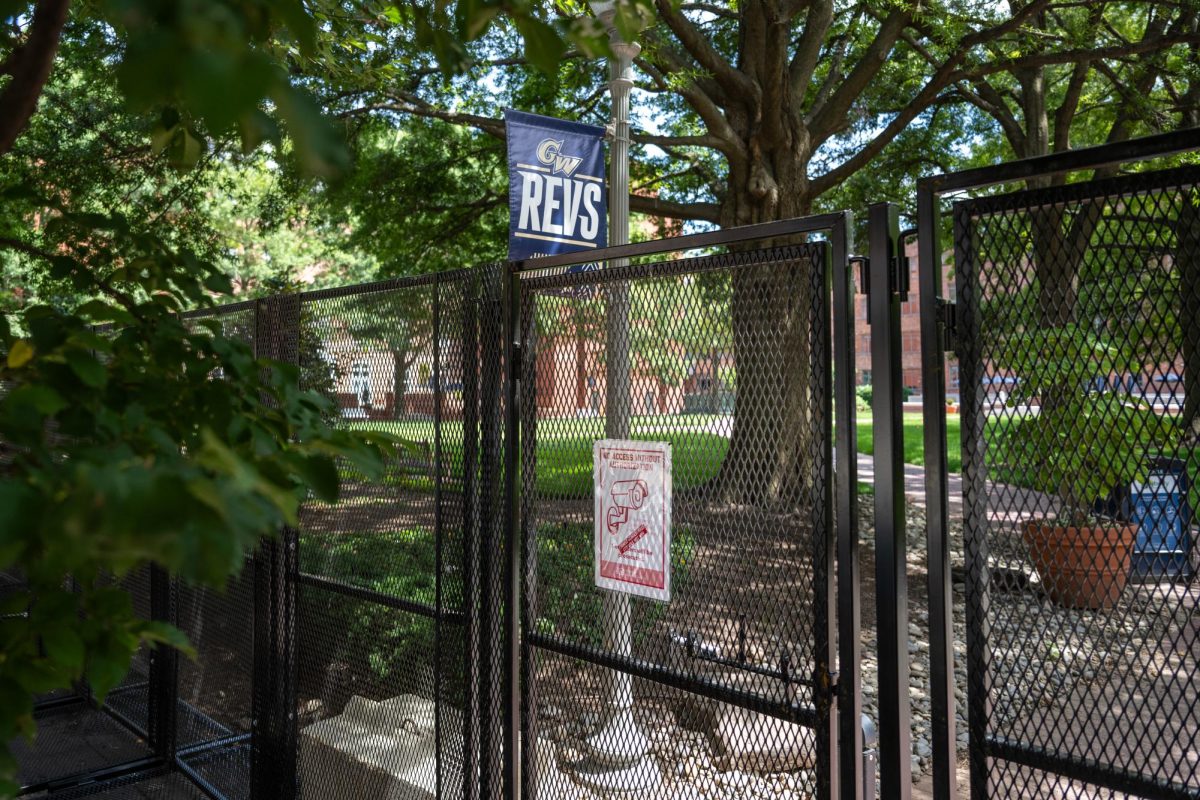More than 100 students and local community members gathered in Kogan Plaza for a candlelight vigil Monday night to commemorate victims of an apartment fire in China late last week.
Demonstrators commemorated victims of the Urumqi fire, which left 10 dead and nine injured Thursday, sparking widespread protests throughout China against the country’s coronavirus containment policies after videos showed the apartment’s lockdown measures prevented firefighters from reaching the victims. Speakers and attendees denounced the Chinese Communist Party and leader Xi Jinping while also engaging in a moment of silence for the lives lost in the fire amid ongoing calls for China to address its alleged human rights violations against the Uyghur people.
“Uyghur communities across the world have been doing everything to raise the voice of our voiceless people,” said local Uyghur activist Tahir Imin, who spoke at the vigil. “Today is part of our efforts to show our solidarity with the people who lost their lives, that their voice cannot be forgotten.”
Demonstrators carried signs with messages like “Free China” and “Uyghur Lives Matter,” to gather in remembrance of the lives lost in the Xinjiang fire, demand change in Chinese COVID-19 policies and call for acknowledgment of human rights violations in Xinjiang. Demonstrators joined in a moment of silence before opening the floor to various speakers to share their own experiences, frustrations with the Chinese government or emotions regarding the deaths.
Imin, the founder of the multi-lingual human rights media outlet Uyghur Times, said he hopes the Uyghur community in the U.S. will attend protests and continue to raise awareness about the reality of oppression in China as thousands continue to protest the treatment of marginalized groups and strict COVID policies.
“It’s part of the reason that we need to do everything we can do to show our solidarity with our people,” Imin said.
Imin said he left China to travel to the United States in 2018, and after he spoke out about human rights abuses in China while in the U.S., his mother and two brothers were also arrested and sentenced to 10-15 years in prison. He said the government has also arrested more than 20 members of his family and placed them in Uyghur internment camps.
In Urumqi, the capital of the Xinjiang province and the location of the fire, residents have been under lockdown under the country’s zero-COVID policy for as long as 100 days, according to Reuters. The Urumqi government began to loosen the COVID restrictions late last week, opening low-risk areas of the city to allow residents to move around more freely, but other regions in Xinjiang still remain under lockdown.
International organizations, like the United Nations, and human rights groups, like Human Rights Watch, have accused China within the past year of persecuting Uyghur Muslims, a majority of whom live in Xinjiang. The UN released an assessment of human rights concerns in August which reported that the discrimination of Uyghurs and Muslim groups may constitute international “crimes against humanity.”
Rory O’Connor – a junior majoring in political theory at Catholic University and founder of the student nonprofit Athenai Institute, which calls on universities to divest from the Chinese Communist Party – said the process of organizing the vigil was “very fast,” with most of the organizing done over Telegram, an anonymous messaging app. He said the GW-specific Telegram chat was not formed until the day before, but the Athenai Institute coordinated between University organizers and community organizers.
“We assisted in organizing that and communicating that to different affected communities and organizations,” he said.
He said the movement began among Chinese students at GW, Georgetown and American universities, then spread to organizations like GW College Republicans, GW College Democrats and Sunrise GW.
“We’ve organized demonstrations in the past, and it’s been 10, 20 people,” he said. “Now it’s close to or over 100.”
Last February, GW garnered national attention over its removal of posters criticizing the Chinese government for human rights violations against the Uyghur people. Students and community members also gathered in Kogan Plaza to call on the University to divest from companies accused of profiting from the Uyghur genocide, and student leaders signed a petition echoing the protest last February, which garnered more than 400 signatures.
Student leaders endorsed former Student Association Sen. Ian Ching’s proposed legislation calling on the University to divest from the CCP. The legislation failed in committee and the full SA Senate never considered it.
Grace Chinowsky contributed reporting.








